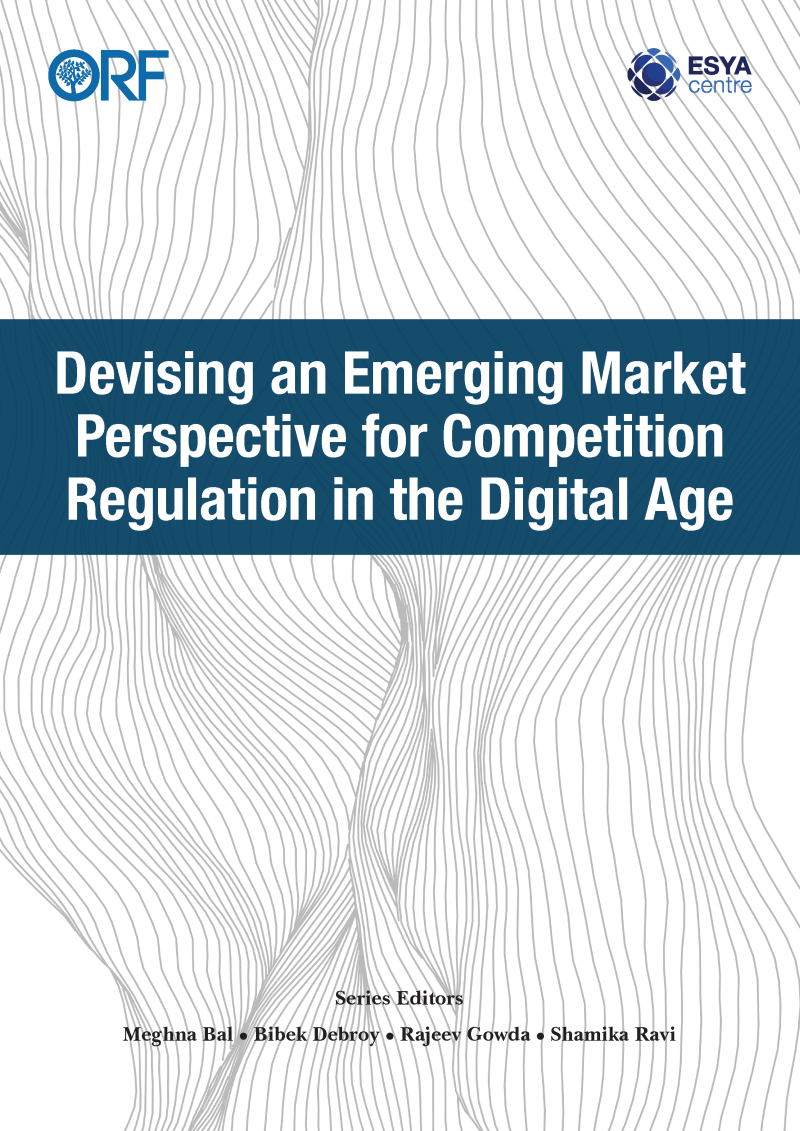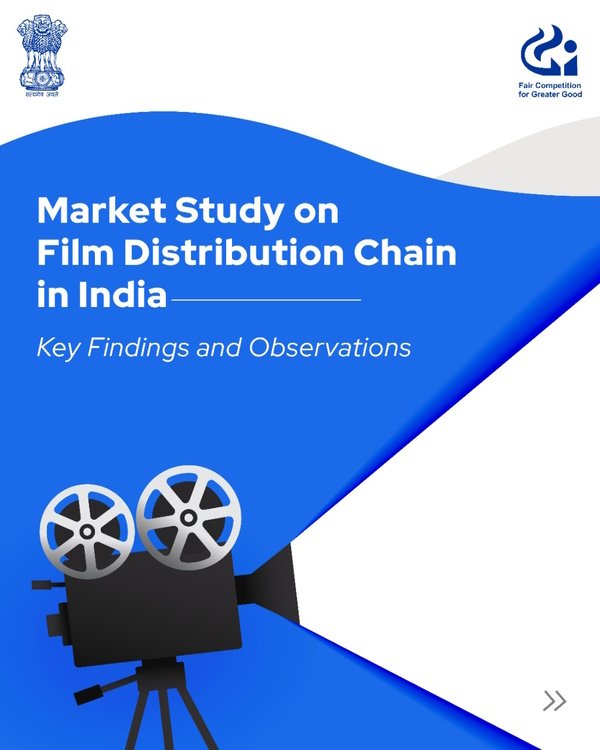Description: With Esya Centre as a Knowledge Partner, the Competition Commission of India (CCI) conducted a Market Study on Film Distribution Chain in India.
The purpose of the study was two-fold. One, to understand the state of competition in the film industry in view of the evolving industry dynamics related to digitization. And two, to identify issues related to competition that can be resolved or mitigated through self-corrective measures to limit the need for Commission’s interventions, with a view to encourage the production and dissemination of content and overall wellbeing of the stakeholders in the ecosystem and address bargaining power imbalances across the value-chain, if any.
The study employed a combination of desk research and primary research that included focus-group discussions, one-on-one meetings, post-discussion surveys, and written submissions of stakeholders. The study highlights some of the key competition issues in the film distribution chain in India, as identified by stakeholders. In doing so, the study discusses the role of various associations in the chain, be it at the production, distribution, or exhibition level; the superior bargaining power of some entities and the resultant imbalances; the bottlenecks that exist at various levels; unequal distribution of risks; revenue-sharing arrangements; new-age technologies in cinema; tying and bundling arrangements at the exhibition level, etc.
The study provided key insights into conceptual and analytical questions such as the relevant market, assessment of the bargaining power of industry constituents, and objective commercial justifications for certain conduct. Relying on the findings from this study and under its advocacy mandate, the Commission has recommended the film industry to devise certain self-regulatory measures for various categories of stakeholders.











